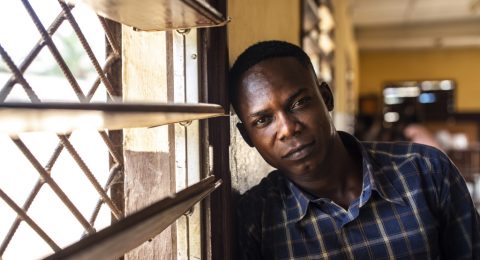Unrest in the Central African Republic forces FCA staff to work remotely
Post-election violence in the Central African Republic has forced Finn Church Aid to evacuate its staff from the field offices to the capital Bangui, creating challenges for the programme work.
The violence sparked by the presidential and parliamentary elections in the Central African Republic has plunged the country into a humanitarian crisis. The unrest began ahead of the election on December 27 and forced 200,000 people to leave their homes, according to UNHCR.
The Central African elections were disrupted by attacks of armed groups in several areas across the country. As a result, several voting stations were closed, and the situation remains fragile. Finn Church Aid (FCA) evacuated its field office staff from Bozoum, Bossangoa, Bangassou and Mbaiki to the capital Bangui. Only the field office in Berberati remains open, apart from the country office in Bangui, where the other programmes are now managed remotely.
On January 21, the authorities declared a 15-day state of emergency that restricted movement and put the capital Bangui under a curfew from eight in the evening until five in the morning. The capital’s security situation continues to fluctuate but is calmed by the UN peacekeeping mission MINUSCA’s presence.
FCA monitors the situation of the field office areas to evaluate when the staff can return safely.

FCA supports youth peace clubs in the capital Bangui.
The humanitarian situation worsens
Despite the enormous needs among the increasing number of refugees and internally displaced people (IDPs), humanitarian assistance transports face several challenges, such as armed attacks on the roads. The situation was difficult already before the election when over half of the population needed assistance, and the rainy season is expected to complicate movement even further.
FCA has launched a response to assist the IDP population with the support of UNHCR. The project initially targeted returning refugees from the neighbouring countries, but few have managed to return due to insecurity. The project builds peace in the local communities through protection committees that aim to improve stability and support victims of human rights violations and vulnerable groups, such as women, children and persons with disabilities.

Rice farmers in Bozoum in 2019.
FCA has worked with several programmes across the country since 2013. The Covid-19 pandemic has delayed several projects, but their implementation continues. In Bangui, for instance, the Masseka lego ti siriri youth peace clubs carry on their activities, and projects in the local communities continue as far as possible without the presence of FCA’s staff.
Ahead of the elections, FCA worked to increase the voter turnout among women and youth. President Faustin-Archange Touadéra was declared the winner of the election.
Text: Nora Luoma
Photos: Patrick Meinhardt